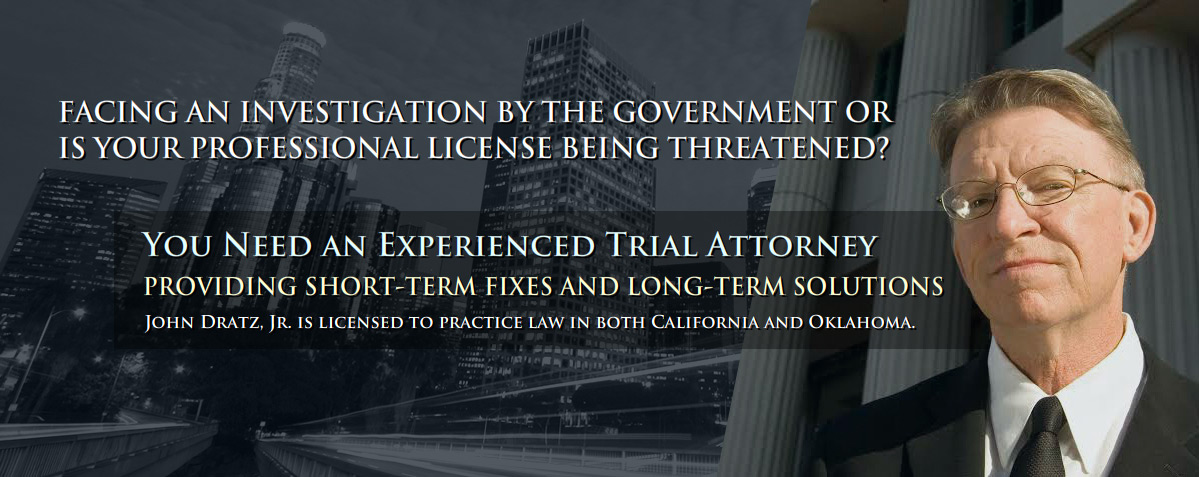This is one area that I will consider representing a person whose interests may be adverse to the interests of the provider. It is also the only area besides Art Law where my firm accepts cases on a contingency basis. Further, this is an area that I will consider handling cases against entity other than a health care provider; for example, actions against military equipment distributors and manufacturers. There are Federal and State False Claims acts (FCA) which allow a whistleblower to recover in a civil action filed against a business or entity who accepts government funds that the whistleblower suspects of committing fraud impacting the government program. The whistleblower is usually an individual who is an employee of the business allegedly committing the fraud. Most of these health care cases involve government health care programs like Medi-Cal and Medicare. However, in California, there is a law that provides a whistleblower action against a private insurer suspected of committing fraud. Further, the FCA is broad enough to include actions involving fraud impacting a broad spectrum of government entities including the military, the Department of Homeland Security and housing agencies.
The FCA encourages individuals who observe fraud at their employer to file suit against the employer suspected of committing the fraud. The whistleblower has the potential to reap large financial benefits from the lawsuit while being protected from retaliation. It works like this.
- The whistleblower has knowledge of the fraud by his or her employer and collects evidence of the fraud. There is no requirement that the whistleblower try to stop the fraud.
- The whistleblower comes to see a lawyer like me to judge the merits of the case and chances of success.
- If the case is viable, the lawyer puts together a booklet of evidence called the “disclosure statement” and files a suit in federal or state court “under seal”. “Under seal” means that the defendant company has no knowledge that the suit has been filed.
- The prosecuting agency is served a copy of the lawsuit and disclosure statement and is required by law to investigate the case. After the case is investigated the prosecuting agency decides whether or not to intervene.
- If the prosecuting agency intervenes the whistleblower cooperates with the government but does not have the expense of moving forward with the litigation.
- If the prosecuting agency settles the case or wins the case, the whistleblower collects his or her share of the proceeds of the case and pays the lawyer 1/3 of his or her share. If the prosecuting agency declines to intervene, normally the case is dropped with no further cost to the whistleblower.
I have vast and successful experience with these cases and headed the Civil Prosecutions Unit within the Bureau of Medi-Cal Fraud and Elder Abuse in the Attorney General’s Office before going into private practice.

